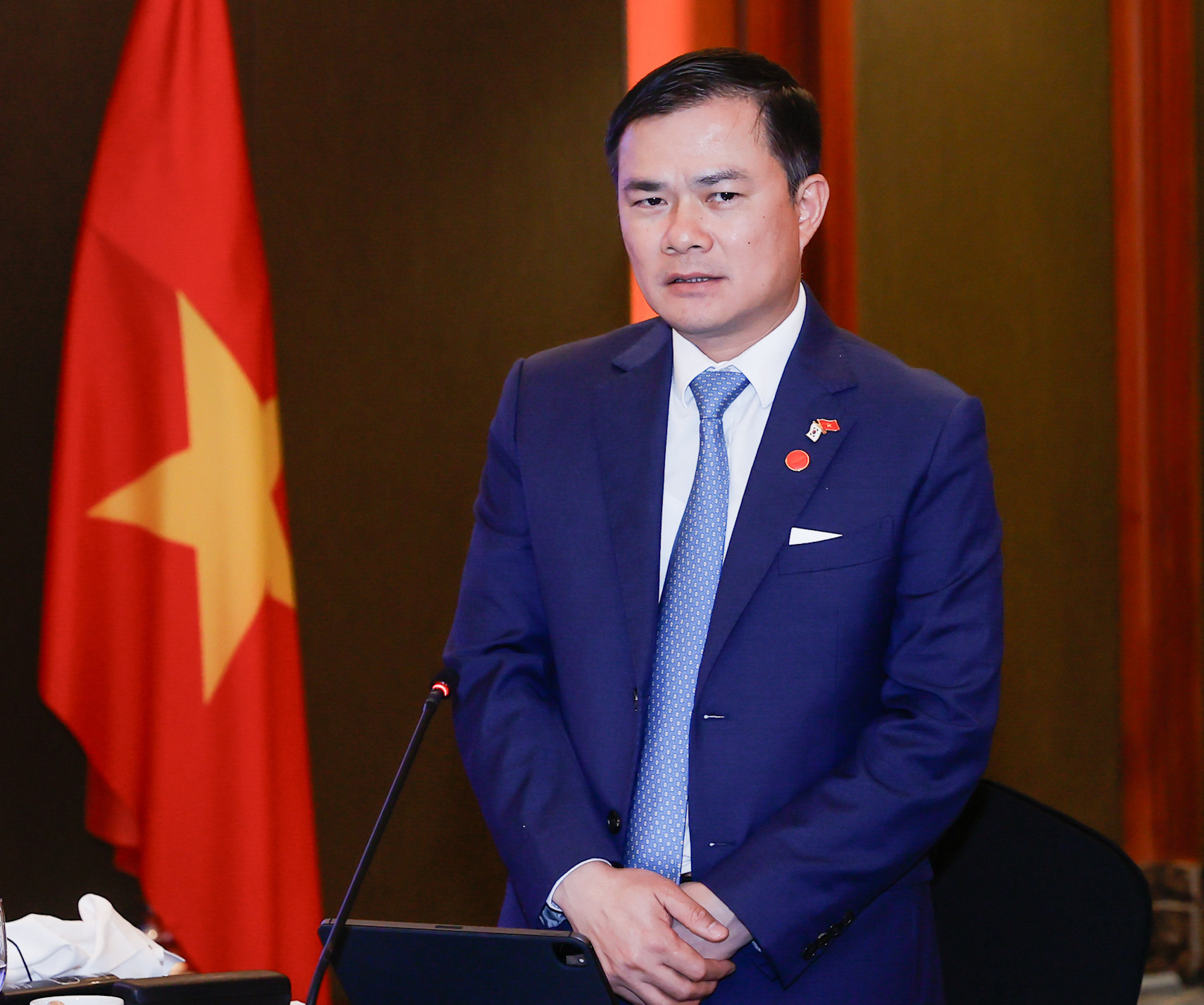These measures aim to make Vietnam more competitive and appealing in these high-tech sectors.

On July 1, during an official visit to Korea, Prime Minister Pham Minh Chinh, along with ministers, engaged in discussions with Korean experts and scientists specializing in semiconductors and artificial intelligence.
Dr. Chang Joon-Yeon, Vice President of the Korea Institute of Science and Technology (KIST), highlighted the significant investments Korea has made in semiconductor technology since 1978. He emphasized the importance of government and investor will in achieving success in this field.
Prof. Lim Jung-Wook from the Electronics and Telecommunications Research Institute (ETRI) noted Vietnam's advantage of having excellent human resources but stressed the need for substantial investment in training these resources to develop the semiconductor industry.
Professor Jeong Moon-seok of Hanyang University warned of the global competition for semiconductor talent and inquired about Vietnam's plans to train and utilize students in this sector.

Responding to the experts, Minister of Planning and Investment Nguyen Chi Dung revealed that the Prime Minister has tasked the Ministry of Information and Communications with developing a semiconductor strategy. A comprehensive AI strategy was also completed four years ago.
Minister Dung shared that the government plans to approve a semiconductor human resources training project in the coming days. The project aims to train 50,000 workers by 2030, with 15,000 in the design sector and 35,000 in other areas, including 5,000 AI engineers.
"Vietnam has the most advantage and needs to take advantage of opportunities in semiconductor human resources," emphasized Minister Dung, noting that 30 universities are set to upgrade 1,300 lecturers to meet this goal.
The Minister also called for support from Korean businesses and universities, especially through scholarships for Vietnamese students.
Minister Dung mentioned the National Innovation Center (NIC) in Hoa Lac and expressed hopes for KIST's participation in semiconductor and AI projects, as well as cooperation in the medical field.

Deputy Minister of Information and Communications Phan Tam added that the Ministry is drafting the Law on Digital Technology Industry, which includes provisions for the semiconductor and AI sectors. He stressed Vietnam’s priority in cooperating with developed countries like Korea.
Deputy Minister Tam outlined Vietnam's determination to make the semiconductor industry foundational to its digital technology sector. The goal is for Vietnam to become a center for providing semiconductor human resources by 2030 and to reach semiconductor production capabilities similar to Korea by 2040-2050.
Viettel Chairman and General Director Tao Duc Thang expressed a strong desire to collaborate with Korean enterprises in semiconductors and AI. He highlighted Viettel’s capabilities, including government support, research and production potential, and a robust ecosystem for high-tech and digital industries.
Prime Minister Pham Minh Chinh reiterated the government’s policy and determination to develop the semiconductor and AI industries. He emphasized the need for artificial intelligence and semiconductor chips in healthcare, particularly highlighted by the pandemic's impact.
In his upcoming meeting with Korean leaders, the Prime Minister plans to propose inter-governmental cooperation in these critical industries, leveraging Korea’s advanced technology.
Thu Hang